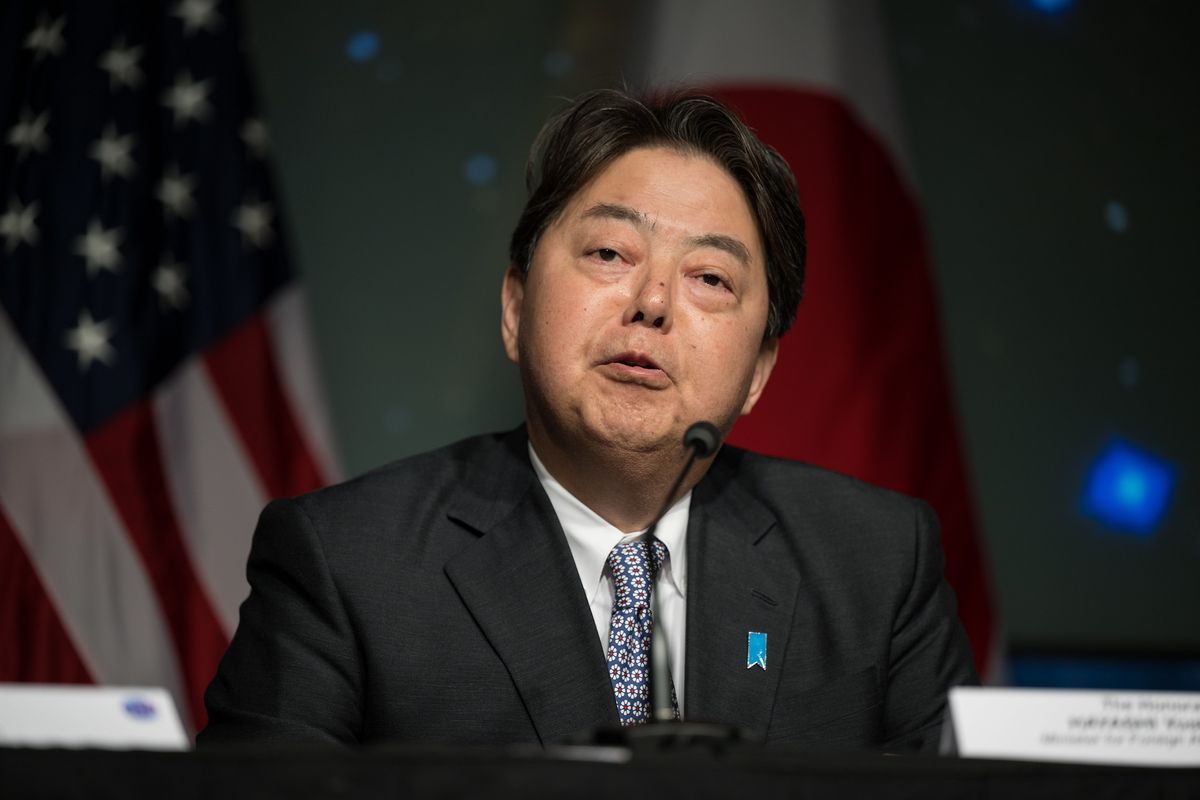Japanese Foreign Minister Visits China as Japan Finds Place in New Economic Alignments

The Lede: Japanese Foreign Minister Yoshimasa Hayashi visited China at the beginning of April to meet with his counterpart Chinese Foreign Minister Qin Gang. Hayashi is now Japan’s first top diplomat to visit China in more than three years amid growing friction between the two countries.
What We Know:
- The major topics of contention include new Japanese export controls implemented alongside U.S. trade restrictions toward China and the detention of an employee of Astellas Pharma who is a Japanese national.
- Japan announced on Friday just before the visit that it will tighten export controls on 23 materials used for semiconductor manufacturing. This falls in line with U.S.-led efforts to limit China’s access to advanced chipmaking technology.
- Hayashi also made demands for the release of a jailed Japanese national and transparency regarding his legal proceedings. This has been a sensitive issue in a time when Japan has been navigating geopolitical positions. Hayashi also conveyed Japan’s concerns over increased Chinese military activity such as its collaboration with Russia, posturing against Taiwan, and maritime presence in the East China Sea.
The Background: Japan’s relationship with China has most recently been affected by the shifting tech trade policies on semiconductor manufacturing. Their position on the side of the U.S. puts them offside with China. However, Japan has recently become the only G-7 country to not comply with the $60 per barrel price cap on Russian oil citing its need for energy supplies. Being a major U.S. ally, Japan is breaking the western unified front against Russia on the Ukraine issue.
Likely Outcomes:
- Japan’s alignment with the U.S. on export restrictions for semiconductor materials is likely to be a major obstacle to improving relations with China. Should they persist, developing positive bilateral trade relations in the future will be difficult and both countries may seek to leverage semiconductor trade policies to gain a more favorable political and economic edge.
- Japan’s break with the western policy on the Russian oil price cap, however, shows that it is not completely dedicated to American geopolitical positions. At least in the energy sector, Japan is behaving, in this case, more in line with those neutral countries that have found the west’s pressure campaign on Russia and China to be costly and undesirable. If the costs to Japan become difficult to bear, there may be some pullback and realignment on trade restrictions in the future. Nevertheless, these will have to be weighed against Japan’s deep ties to the U.S., especially on national security.
Quotables:
“Politicizing ... and weaponizing sci-tech and trade issues and intentionally undermining the stability of global supply and industrial chains would only hurt others as well as oneself.” – Mao Ning, Chinese Foreign Ministry Spokesperson
“This happened when the Chinese government is trying to promote Japanese investment to China, and we see a discrepancy there,” Yukiko Okano, Deputy Press Secretary of the Foreign Ministry of Japan
Good Reads:
Japan FM to visit China as Tokyo imposes new export controls (AP)
Japan’s foreign minister urges China to release jailed national (Al Jazeera)
Japan Breaks With U.S. Allies, Buys Russian Oil at Prices Above Cap (WSJ)
